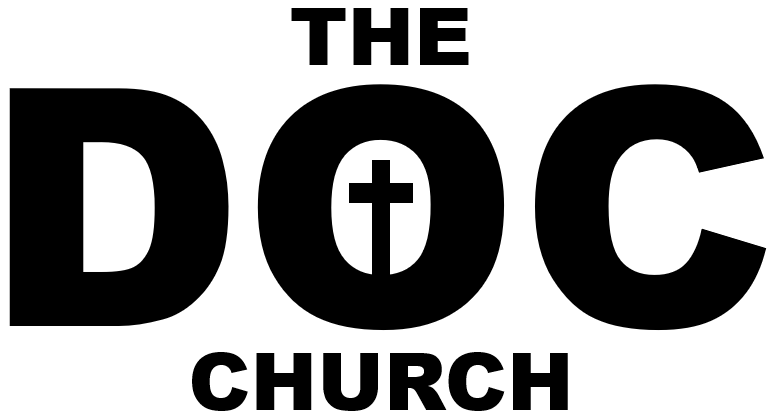Policy
Introduction
The DOC Church is committed to providing a safe and secure environment for all children, young people, and vulnerable adults who attend our services and activities. This policy outlines our commitment to safeguarding and the procedures we will follow to protect those in our care.
Aims
- To protect children, young people, and vulnerable adults from harm.
- To provide staff and volunteers with clear guidelines and procedures for safeguarding.
- To ensure all concerns and allegations of abuse are taken seriously and responded to appropriately.
Definitions
- Child: Any person under the age of 18.
- Vulnerable Adult: A person aged 18 or over who is, or may be, unable to take care of themselves or protect themselves against significant harm or exploitation.
Policy Statement
We believe that:
- The welfare of children and vulnerable adults is paramount.
- All children and vulnerable adults, regardless of age, disability, gender, racial heritage, religious belief, sexual orientation, or identity, have the right to equal protection from all types of harm or abuse.
- Working in partnership with children, their parents, carers, and other agencies is essential in promoting young people’s and vulnerable adults’ welfare.
Safeguarding Roles and Responsibilities
- Designated Safeguarding Lead (DSL): Andrew Wyatt, Elder, mobile: 07903 362 617
- Responsible for overseeing safeguarding within the church.
- Ensures that all safeguarding concerns are recorded and responded to appropriately.
- Liaises with statutory agencies and other relevant organizations.
Recruitment and Selection of Staff and Volunteers
- All staff and volunteers working with children and vulnerable adults will undergo:
- Enhanced Disclosure and Barring Service (DBS) Checks
- Safeguarding Training: Induction training and regular updates.
Code of Conduct
- Staff and volunteers must:
- Treat all children and vulnerable adults with respect and dignity.
- Always act in a professional manner.
- Avoid being alone with a child or vulnerable adult where possible.
- Use appropriate language and behavior.
Responding to Concerns
- Recognizing Abuse: Staff and volunteers should be aware of the signs of abuse, including physical, emotional, sexual abuse, and neglect.
- Reporting Concerns: Any concerns about the welfare of a child or vulnerable adult should be reported to the DSL immediately.
- Handling Disclosures:
- Listen carefully and reassure the individual.
- Do not promise confidentiality – explain that you will need to share this information.
- Record the disclosure accurately and pass it to the DSL.
Record Keeping
- Accurate records of all safeguarding concerns, incidents, and actions taken will be maintained by the DSL.
Confidentiality
- Information about safeguarding concerns will be shared on a need-to-know basis and handled confidentially.
Parental Consent
- Written consent will be obtained from parents or guardians for all activities involving children.
Risk Assessments
- Risk assessments will be conducted for all activities involving children and vulnerable adults.
Whistleblowing
- A whistleblowing policy is in place to encourage staff and volunteers to report concerns without fear of retribution.
Review and Monitoring
- This policy will be reviewed annually and updated as necessary to reflect best practices and legislative changes.
Contacts
- Designated Safeguarding Lead: Andrew Wyatt, Elder, mobile: 07903 362 617
- Local Authority Safeguarding Team: Staffordshire County Council
- NSPCC Helpline: 0808 800 5000
Approval
This policy was approved by the The DOC Church leadership team on _9th July 2024__.
Signed: _Andy Wyatt________________
Position: _Edler / DSL_________________
Date: _9th July 2024________________
Roadmap
Running a Sunday school or children’s group in the UK involves meeting several safeguarding and regulatory requirements to ensure the safety and welfare of children. Our road map ahead aims to achieve these points.
1. Safeguarding Policy
- Develop a safeguarding policy: This policy should outline how your Sunday school will protect children from harm, including procedures for reporting and dealing with concerns.
2. Designated Safeguarding Lead (DSL)
- Appoint a DSL: This person is responsible for overseeing safeguarding issues and should be trained to handle safeguarding concerns.
3. Disclosure and Barring Service (DBS) Checks
- Conduct DBS checks: All staff and volunteers who work with children must undergo DBS checks. For those in regulated activity, enhanced DBS checks are required.
4. Training
- Provide safeguarding training: Ensure that all staff and volunteers receive appropriate safeguarding training to understand their responsibilities and how to handle safeguarding issues.
5. Supervision
- Supervise children appropriately: Children should always be supervised by two or more adults to ensure their safety.
6. Reporting Procedures
- Establish clear reporting procedures: Set up a system for reporting and responding to safeguarding concerns, including how to handle disclosures from children.
7. Parental Consent
- Obtain parental consent: Secure informed consent from parents or guardians for children’s participation in Sunday school activities.
8. Code of Conduct
- Implement a code of conduct: Develop guidelines for appropriate behavior by staff and volunteers when interacting with children.
9. Risk Assessments
- Conduct risk assessments: Regularly assess potential risks associated with Sunday school activities and take steps to mitigate them.
10. Health and Safety
- Ensure health and safety compliance: Make sure your Sunday school complies with health and safety regulations to provide a safe environment for children.
11. Record Keeping
- Maintain accurate records: Keep detailed records of all safeguarding concerns, incidents, and the actions taken in response.
12. Whistleblowing Policy
- Establish a whistleblowing policy: Encourage staff and volunteers to report concerns without fear of retribution.
13. Insurance
- Obtain appropriate insurance: Ensure Sunday school has insurance coverage for activities involving children.
Key Legal and Guidance References:
- Children Act 1989 and 2004: Sets out the framework for safeguarding and promoting the welfare of children.
- Safeguarding Vulnerable Groups Act 2006: Provides the legislative framework for DBS checks.
- Working Together to Safeguard Children 2018: Outlines how organizations should work together to safeguard children.
- Charity Commission Guidance (CC3): Details trustees’ duties, including safeguarding.
- Charity Commission Guidance – Safeguarding and Protecting People for Charities and Trustees (2019): Emphasizes safeguarding responsibilities for charities.
